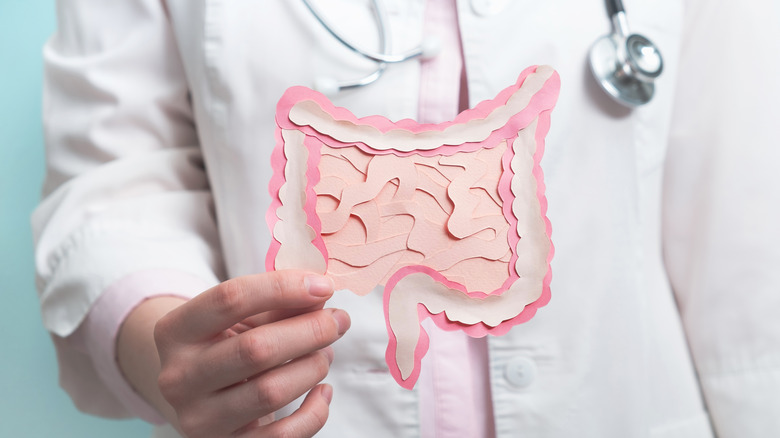Is It Possible To Reverse Food Allergies?
The American College of Allergy, Asthma, & Immunology alerts that food allergies among Americans is pervasive, affecting over 50 million individuals. This amounts to about 4% of adults and between 4% and 6% of children. Food allergies are an autoimmune reaction in which the immune system perceives substances found in certain foods as a threat. As a result, the body attacks the substance, leading to a chain of reactions that can range from vomiting to skin hives and even death through anaphylaxis, a reaction that affects the respiratory system.
Most food allergies are caused by the same eight common foods: tree nuts, peanuts, soy, eggs, wheat, fish, shellfish, and cow's milk (and its derivatives), as per Healthline. However, anyone can develop an allergy to any food at any time in their life. If you experience swelling of the mouth and throat, digestive distress (including vomiting and diarrhea), a rash anywhere on your body, or trouble breathing after eating a certain food, you may have an allergy and should get checked out by a doctor.
Previously, food allergies could only be managed through medications and avoidance of allergens (per Healthline), but scientists have been working to find a way to reverse allergies once and for all, according to Medical News Today. Recent research has shown some encouraging results.
The key to reversing food allergies may lie in the microbiome
Researchers at the University of Chicago made a breakthrough during a study in the summer of 2022 around a potential treatment that could reverse food allergies (per Medical News Today). The focus of the study was on the gut microbiome (the makeup of microorganisms that naturally co-exist in our intestinal tract), which has been studied as a potential link to food allergies. A 2019 review explains further that individuals presenting with food allergies have an altered gut microbiome, which has been shown to contribute to the development of such allergies.
As a result of this knowledge, researchers targeted one of the beneficial bacteria found in the gut microbiome, Clostridia, which releases a substance known as butyrate that works to fortify other beneficial bacteria while maintaining the cohesion of the intestinal walls (per Medical News Today). They injected the substance directly into the guts of mice and found that this not only prevented food allergy development in the tested mice but also reversed pre-existing allergies.
The results of this study prove promising for the same allergy-reversing effects to be seen in humans in future research. In the meantime, other treatments, including immunotherapy, which involves exposing an individual to a small amount of the allergen and increasing the dosage over time, are being used to desensitize the allergic response, as per The American College of Allergy, Asthma, & Immunology. Although, none so far have been able to reverse the allergy completely.


